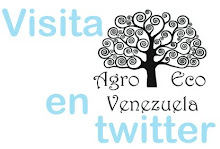Hatt S, Boeraeve F, Artru S, Dufrêne M, Francis F.
sábado, 2 de diciembre de 2017
Spatial diversification of agroecosystems to enhance biological control and other regulating services: An agroecological perspective.
Hatt S, Boeraeve F, Artru S, Dufrêne M, Francis F.
Hatt S, Boeraeve F, Artru S, Dufrêne M, Francis F.
Spatial
diversification of crop and non-crop habitats in farming systems is
promising for enhancing natural regulation of insect pests.
Nevertheless, results from recent syntheses show variable effects. One
explanation is that the abundance and diversity of pests and natural
enemies are affected by the composition, design and management of crop
and non-crop habitats. Moreover, interactions between both local and
landscape elements and practices carried out at different spatial scales
may affect the regulation of insect pests. Hence, research is being
conducted to understand these interdependencies. However, insects are
not the only pests and pests are not the only elements to regulate in
agroecosystems. Broadening the scope could allow addressing multiple
issues simultaneously, but also solving them together by enhancing
synergies. Indeed, spatial diversification of crop and non-crop habitats
can allow addressing the issues of weeds and pathogens, along with
being beneficial to several other regulating services like pollination,
soil conservation and nutrient cycling. Although calls rise to develop
multifunctional landscapes that optimize the delivery of multiple
ecosystem services, it still represents a scientific challenge today.
Enhancing interdisciplinarity in research institutions and building
interrelations between scientists and stakeholders may help reach this
goal. Despite obstacles, positive results from research based on such
innovative approaches are encouraging for engaging science in this path.
Hence, the aim of the present paper is to offer an update on these
issues by exploring the most recent findings and discussing these
results to highlight needs for future research.
Suscribirse a:
Enviar comentarios (Atom)











No hay comentarios:
Publicar un comentario